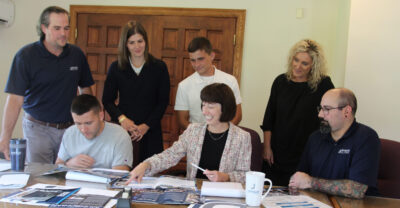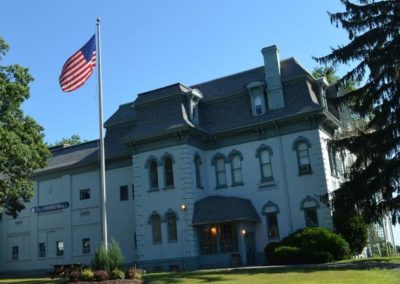Johnson College’s Continuing Education program is offering a Forklift Operator Training Course on Saturday, March 12, 2022, from 8 a.m. to 5 p.m.in the Diesel Truck Technology Center on the College’s campus in Scranton. The course cost is $200, but if you are a current Johnson College student or alumni, the price is only $100. Space is limited! Visit johnson.edu/continuingeducation or contact our Continuing Education team at 570-702-8979 or continuinged@johnson.edu to learn more and enroll.
The forklift operator training is designed to familiarize students with OSHA Powered Industrial Truck Operator Training Requirements (29CFR Standard 1910.178 and ASME B56.1), provide current training requirements under the newly adopted standards, and assist participants in becoming an authorized operator of forklifts through theory and tactile testing. Nine hours of instruction, including pre-operational inspection, picking up, traveling, and placing loads, parking procedures, refueling, and practical operation.









